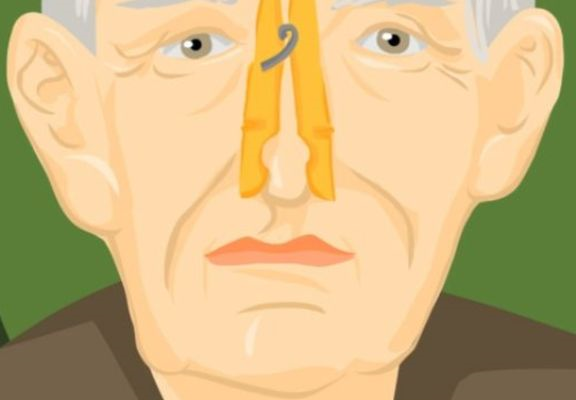The phenomenon is scientifically known as “nonenal.” Nonenal is an organic compound that develops as a result of the aging process. Here’s how it happens:
- Oxidation of Skin Lipids
As we age, our skin undergoes oxidative stress, which results in the breakdown of fatty acids. This process releases 2-nonenal, a chemical compound with a distinct, somewhat musty odor. Nonenal is typically more prevalent in individuals over the age of 40 and becomes increasingly prominent with age. - Reduction in Skin Renewal
Younger skin renews itself regularly, shedding dead cells at a faster rate. Aging slows this process, leading to a buildup of oils and residues on the skin’s surface, contributing to the distinctive smell. - Hormonal Changes
Hormonal fluctuations that occur as people age can also play a role. These changes can alter the composition of sweat and skin oils, amplifying the production of nonenal. - Environmental Factors
A closed environment, limited airflow, or improper ventilation in homes where elderly individuals reside can intensify and trap these odors, making them more noticeable.
How to Address and Minimize “Old Person Smell”
If you or someone in your family has noticed this phenomenon, there are several ways to manage and reduce its impact. Here are some practical and effective tips:
1. Focus on Personal Hygiene
Regular bathing with pH-balanced soaps can help remove the oils and compounds responsible for the smell. Pay attention to areas prone to sweat or oil buildup, such as underarms, feet, and folds of the skin.
2. Update Laundry Practices
Clothing and linens absorb and hold onto body oils and odors. Wash clothes and bedding frequently using detergent formulated for tough odors. Adding white vinegar to the wash cycle can help break down stubborn smells.
3. Improve Home Ventilation
Poor airflow can exacerbate and trap odors. Ensure good ventilation by opening windows regularly, using air purifiers, or installing exhaust fans to maintain fresh air circulation.
4. Use Natural Odor Absorbers
Products like baking soda, activated charcoal, or dehumidifiers can absorb unwanted smells from the air. These solutions are especially useful for small spaces such as closets or drawers.
5. Adopt a Healthy Diet
Diet plays a role in body odor. Encourage consumption of fruits, vegetables, and plenty of water, while reducing processed foods or strong-smelling items like garlic and onions. These dietary adjustments can positively affect body chemistry.
6. Moisturize Regularly
Aging skin tends to become dry, which can exacerbate the production of nonenal. Using fragrance-free moisturizers helps maintain a healthy skin barrier and reduces the effects of aging on body odor.
7. Replace Old Furniture and Carpets
Upholstery and carpets can absorb and retain odors over time. Consider steam cleaning or replacing these items if the smell persists in the home despite other efforts.
Why It’s Important to Address
Understanding and addressing “old person smell” isn’t just about aesthetics or comfort—it’s also tied to well-being. Odors may signal hygiene issues, which can sometimes point to underlying health problems. Taking steps to manage these odors can improve quality of life and foster a welcoming environment for all.
Embrace Aging Gracefully
Aging is a natural and beautiful part of life, and the changes that come with it shouldn’t be a source of embarrassment. By taking proactive measures and understanding the root causes, “old person smell” can be effectively managed or eliminated. With the right care and lifestyle adjustments, aging individuals can continue to feel confident and maintain a fresh, clean environment.

